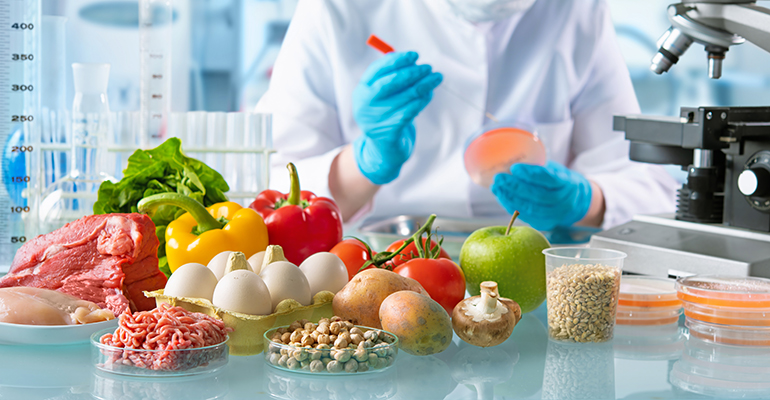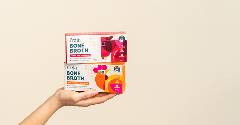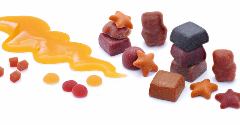News
Enhanced ingredients: Using biotech to create highly functional food
4 Mar 2022
Through acquisitions, investments and internal R&D, ingredient companies are harnessing biotechnology to create healthier ingredients and more functional additives.
Food has progressively become more than just fuel. For several years, consumers have looked to glean more functionality and sustainability from their foods, and the arrival of Covid-19 has only accelerated this trend as people looked to food as a means of maintaining their health.
To answer this call for sustainable functionality, large manufacturers and ingredient corporations alike have begun to look toward biotechnology firms that are providing novel solutions to age-old problems with human health and working to acquire these companies to complement their portfolios.

Irish ingredients Kerry has invested deeply in biotech acquisitions to create enhanced ingredients and now has global ambitions for its ingredients solutions. In a 2020 announcement, the company’s CEO Edmond Scanlon said building out the company’s portfolio of ingredients and biotech techniques is a strategic choice to help Kerry meet its goal of reaching 2 billion people with sustainable nutrition solutions by 2030.
Biotech acquisitions abound in food and beverage
Last month, Kerry acquired two biotech companies for €137 million ($226.2 million). Its acquisitions included C-LEcta , a German precision fermentation innovator and the Mexican enzyme manufacturer Enmex. This dual acquisition will accelerate Kerry’s innovation capabilities in enzyme engineering, fermentation and bio-process development, the company said in a statement.
While Germany’s C-LEcta expands Kerry’s access to enzymatic technologies — the company developed an enzymatic process to create natural sugar as well as remove unwanted DNA residue from applications — the decision to bolt Enmex onto its portfolio further expands Kerry’s capabilities in clean-label preservation. Last autumn, Kerry purchased Niacet, a company that developed vinegar-based preservation technologies for meat and plant-based foods.
Sustainable technologies drive decisions
Sustainable alternatives to preservatives — a crucial food safety challenge — have long been on the radar for ingredients manufacturers seeking to deliver clean-label alternatives that provide the necessary shelf-life functionality that consumers have come to expect. Nitrates are a common preservative but are also controversial and even banned in certain member states of the EU. A study by the European Food Safety Authority (EFSA) found that “nitrites — including when used as food additives — contribute to the formation of a group of compounds known as nitrosamines, some of which are carcinogenic.” However, the safety authority found that at current levels of use, consumers are sufficiently protected.
Nevertheless, clean-label preservatives remain a focal point for Kerry. Following the conclusion of the Niacet acquisition, Thomas Hahlin Ahlinder, president and CEO at Kerry Europe and Russia told Fi Global Insights: “By combining Niacet and Kerry’s collective technologies, capabilities and expert knowledge and by layering in Kerry’s broader taste and nutrition portfolio, we are able to develop solutions for even the most complex of food safety challenges.”
Kerry is not alone in seeking out novel, natural solutions to food preservation. Blue California, Givaudan and Kalsec are all working in the space to provide consumers with alternatives to nitrates. While preservatives are a significant focus in the biotech space, they are not the only thing that food manufacturers are looking at when trying to provide next-generation food products to consumers.
Nestlé, the world’s largest food corporation, has an entire division dedicated to developing next-generation food solutions. Called, Nestlé Health Science, this branch of the Swiss conglomerate has invested in fighting allergies through its double investment into Aimmune Therapeutics, a company that develops treatments to reduce the frequency and severity of potentially life-threatening food allergies in children. Nestlé has made many other investments in functional biotech ingredients, including in the Switzerland-based science company Amazentis, which has developed Urolithin A technology to boost the function of ageing and damaged cell mitochondria.
Other companies are also looking to develop foods that are free from allergens and synthetic additives. In February, Italy's CSM Ingredients acquired Hi-Food, a manufacturer of functional ingredients for the plant-based and clean label food industry.
With the global functional food ingredients market set to reach $118.4 billion by 2026, according to ReportLinker, there is a long runway for growth available to manufacturers that are interested in taking this path to enhance their portfolio.
Related news

Bone broth: From old-fashioned to en vogue
24 Nov 2025
OXO’s entry into bone broth has turned the spotlight on this small but high-performance category – and there is still scope for growth, especially in the area of GLP-1 support.
Read more
Matcha madness: Why green is this year’s hottest colour
19 Nov 2025
Five years ago, it was a struggle to find matcha outside of Japan. Now it seems to be popping up everywhere, from coffee shops to supermarket shelves.
Read more
How younger consumers are redefining ingredient choices and rejecting brand loyalty
18 Nov 2025
Gen Z and millennial consumers’ preferences for transparency, functionality, and purpose are “redefining the very nature of consumption itself”, says SPINS.
Read more
Hybrid formats and flexible positioning to disrupt category norms in 2026
17 Nov 2025
Trend forecasters expect food and drink to move more fluidly across occasions, functions, and formats as consumers seek versatility, novelty, and convenience.
Read more
Empowering innovation in fortification and colouration
13 Nov 2025
Divi’s Nutraceuticals offers a large portfolio of innovative, high-quality ingredients for foods, beverages, and supplements, with bespoke solutions and expert support for product success.
Read more
Predictive maintenance redefines powder mixing reliability
13 Nov 2025
Mill Powder Tech's smart control systems harness real-time data to help the food and biotech sectors achieve zero downtime and smarter output, alongside rigorous GMP standards and ambitious ESG goals.
Read more
From fruit to functional solutions: Meet Paradise Fruits at Fi Europe in Paris
13 Nov 2025
Paradise Fruits Solutions and Paradise Fruits Health will showcase their combined expertise in delivering innovative, fruit-based solutions to the food and beverage industry at the upcoming Fi Europe trade show (2-4 December 2025, Paris).
Read more
Danone highlights digestive health as potential ‘tipping point’ for food industry
13 Nov 2025
Danone is betting on a food industry “tipping point” that will bloat the market for healthy products, particularly those related to gut health.
Read more
Bord Bia presents Irish dairy ingredient suppliers at Fi Europe
6 Nov 2025
Dairygold Co-operative Society, The Carbery Group, and Ornua Co-operative: Meet with sustainable producers of Irish dairy ingredients at Food ingredients Europe 2025, Hall 7.2 Stand M18.
Read more
Ingredient quantities mislabelled on popular protein bars, independent tests show
5 Nov 2025
Some popular protein bars contain more fat, carbs, and/or sugars than claimed on their labels, independent nutrition testing reveals.
Read more